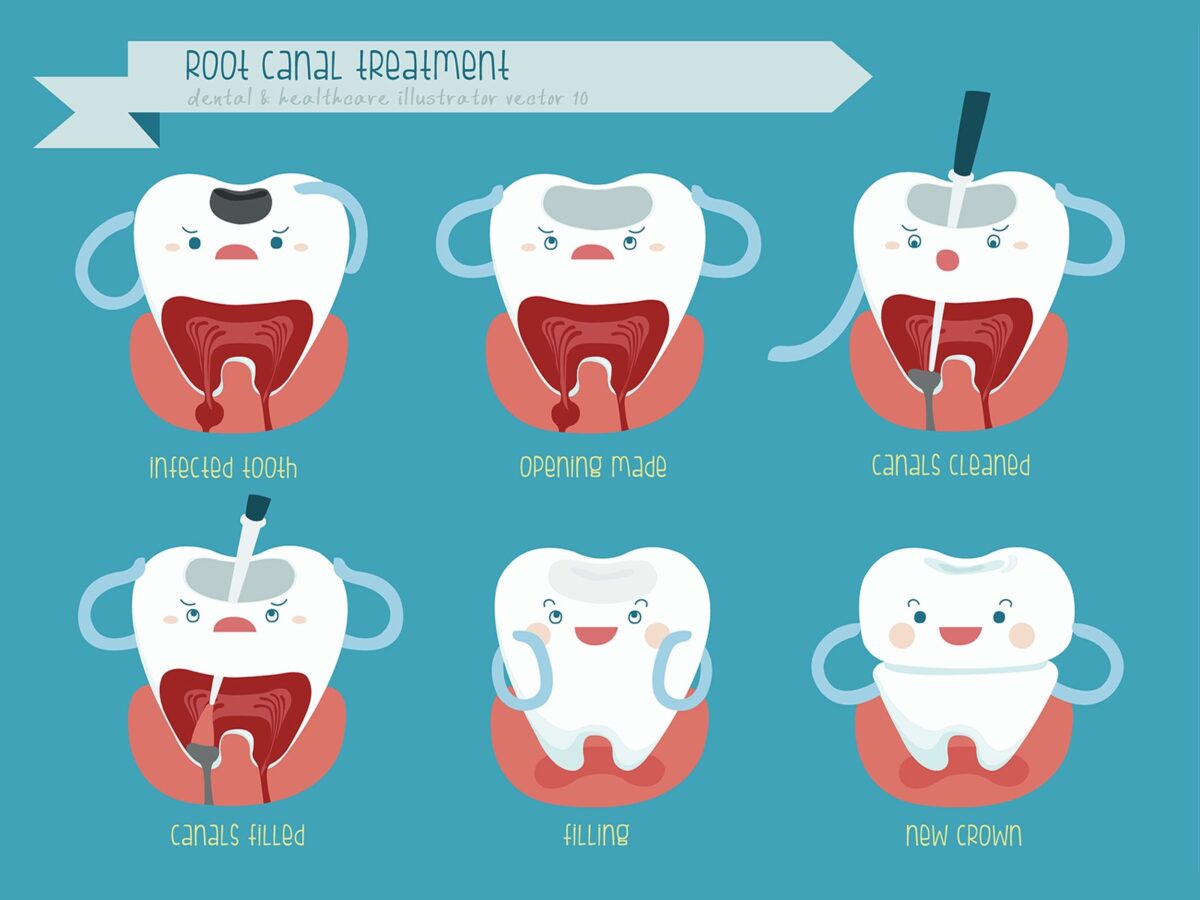Blog
Dental hygiene tips for healthy teeth & gums

What is a Root Canal, and Why Do I Need One?
A root canal is a serious dental procedure but is routinely done at a dentist’s office. A root canal is a treatment intended to save a badly infected or decayed tooth. Often a tooth’s nerve and pulp can get infected, inflamed, and irritated because of several reasons such as:
- A deep decay of tooth.
- Repeated dental procedures
- Large fillings
- Crack or chip in a tooth
- Trauma to the face
A root canal treatment:
- Removes the nerve and pulp of the bad tooth
- Cleans the root canal
- Finally, it fills and seals the inside of the tooth.
Root canal in the past used to be an excruciating affair, and people avoided it, but nowadays, it is as painless as getting a filling done.
Why Should one get the Tooth Pulp Removed?
Removing a tooth nerve does not adversely affect how your tooth works since the job of a tooth nerve is to give you a sensation of hot and cold. If one does not get the root canal treatment, the tissue around the tooth will get infected and form an abscess. An abscess means that infection has spread all the way and passed the ends of the tooth’s roots. An infection can also give rise to the following complications:
- Swelling that may spread to other portions of the body like the face, head, or neck.
- A loss of bone around the root tip
- The side of the tooth might develop a hole leading to drainage problems extending outward from the root. This drainage could reach gums or through the cheek into the skin.
You Might Require a Root Canal If You Have the Following Symptoms
Root canals are mostly needed when a tooth cracks due to injury, a deep cavity, issues from a previous filling, or a genetic condition. If you feel your teeth are more sensitive to hot and cold, then you might consider visiting your dentist to check if you need a root canal. Few other symptoms to give you warning signs for the need for a root canal are:
- Tremendous pain when you chew or bite.
- The appearance of pimples on the gums
- A cracked or chipped tooth
- Even after a hot or cold substance is removed, there is a lingering sensation of hot or cold
- Tender or swollen gums
- Darkening or decaying of the gums
Root Canal Treatment – Pros and Cons
Every dental procedure comes with its own sets of pros and cons, here we present some of them related to root canal:
Pros
- Relieves the root canal pain
- Tooth extraction is not needed
- The bone around the tooth is preserved
- It doesn’t cost you a lot as it would for an implant
Cons
- The mouth is left open for an extended period during the procedure, which could be pretty uncomfortable
- There is a little bit of risk of infection after a root canal
Root canal treatment is no longer a painful procedure, and the only person who can confirm whether you need it or not is your dentist. After a root canal procedure is over, your mouth could feel numb for a couple of hours, but you can go right back to your school, work, or other activity.
Book an Appointment to find out which treatment might be best for you.


